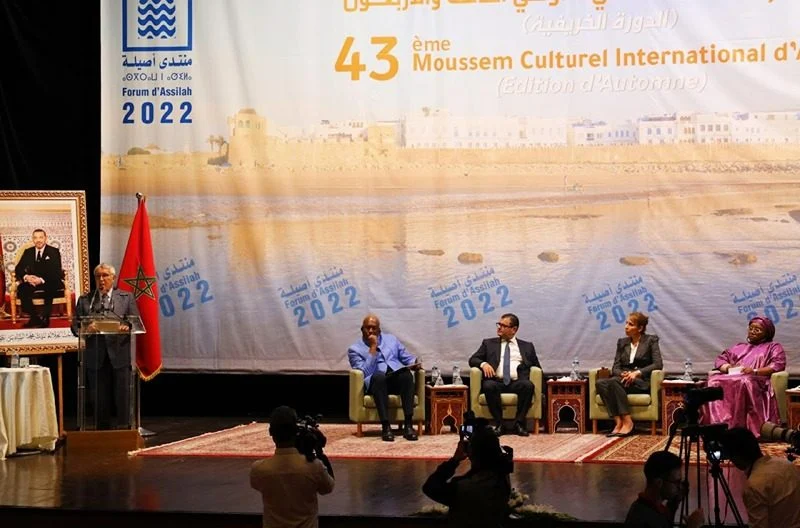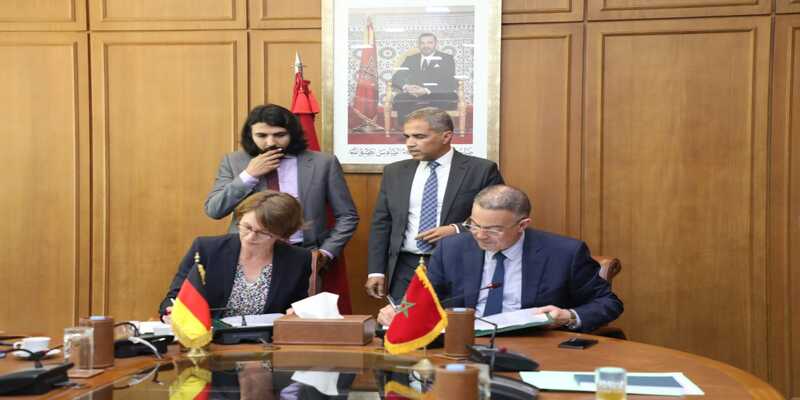The existence of separatist groups in Africa is a direct factor in triggering civil wars and racial and ethnic conflicts, as well as upheavals in the social and cultural fabric that undermine the foundations and stability of African countries, said Moroccan Foreign Minister Nasser Bourita.
The security challenges facing the African continent today are, as a whole, unprecedented and unexpected, with a pace that continues to accelerate and a complexity that grows exponentially, said the Minister in an address read on his behalf Sunday at the opening of the fall session of the 43rd edition of the International Cultural Moussem of Assilah and the 36th edition of the Open University Al-Mu’tamid Ibn Abbad.
In this context, Bourita added that nearly half of the victims of terrorism in the world have died in Africa, especially since terror organizations are expanding and imposing their control over geographical areas across the continent.
Africa remains the continent most affected by crises, conflicts, wars and the impact of climate change that threaten food security and cause demographic transformations due to forced displacement and migration, he said.
Africa also faces the scourge of arms and drug smuggling, aggravated by porous borders and weak and fragile security systems, he noted, stressing that the lack of good governance and strong institutions has generated a state of political and social instability, dragging the democratic process into a chronic fragility that manifests itself through successive military coups.
The Minister noted that separatist ideology not only causes civil wars, but also fuels extremism and terrorism. He explained that separatist and terrorist movements have several points of convergence, namely undermining the sovereignty and foundations of states, attracting abundant funding and replicating operational tactics.
In this context, Bourita said it is necessary to establish effective partnerships based on existing structures, including regional organizations, to strengthen synergies and unify efforts on the African continent at national, subregional and regional levels, taking into account the requirements and specificities of each country.
The Minister who pointed out that the kingdom trusts regional organizations and supports all the steps of the African Union, said Morocco’s approach is based on the idea of a global and broad engagement at different levels, lending a hand and accompanying brotherly African countries in the different stages of achieving security and development, through participation in UN peacekeeping forces deployed in Africa and effective contribution to the fight against terrorism, through a comprehensive and innovative approach to eliminate terrorism at its source, as hailed by African countries that benefit from the training and education of imams and morchidines.
In parallel to these contributions, Morocco is making tireless efforts to eliminate marginalization and exclusion, to fight climate change and threats to food security and combat the root causes of extremism.
The fall session of the 43rd edition of the International Cultural Moussem of Assilah opened Sunday evening in the presence of a panel of experts, intellectuals and researchers from Morocco and abroad.
This edition, held from October 16 to November 5, under the High Patronage of King Mohammed VI, will be marked by the organization of seven symposia as part of the 36th edition of the Open University Al-Mu’tamid Ibn Abbad and features several artistic and cultural activities.



